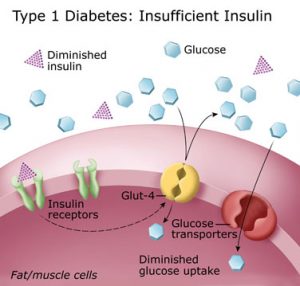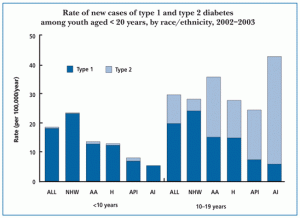Is Type 1 Diabetes Hereditary?

Is Type 1 diabetes hereditary is a question that a growing number of people are asking.
This is especially true now that diabetes rates are increasing each and every day, and as of now juvenile diabetes is fast becoming the single biggest chronic health problem faced by the modern population of young people. The answer to is type 1 diabetes hereditary isn’t always apparent and studies have been going on for years to answer the question and yet a clear answer is not forthcoming as doctors, scientists, and analysts struggle to find the single greatest causative factor for the disease in the hopes that once the cause is found a cure will soon follow. Diabetes may well be genetically induced and if so then the defective gene may be some day isolated so that prenatal diagnosis can be made and perhaps a cure found through gene therapy and or in-vitro treatments. Though as of this writing such types of therapy belong in the realms of science fiction rather than in the realm of what is medically possible with the limited amount of knowledge and technology available today.
For many people the question is type 1 diabetes hereditary is one that is asked when they or a family member has the disease and they want to know the chances of passing it on to their children, either before having children or in order to be more vigilant for symptoms in the children they already have. It does seem that there is an increased risk of developing type 1 diabetes if a parent, especially the father has the disease, and an even greater chance if a sibling has it. When a person asks themselves is type 1 diabetes hereditary they should remember that even though there may be an increased risk of the disease in those with close family who have the disease there is absolutely no guarantee that they or their offspring will ever develop diabetes.




